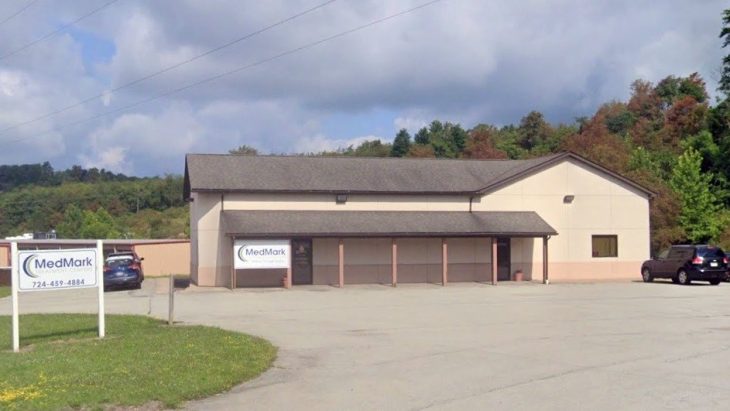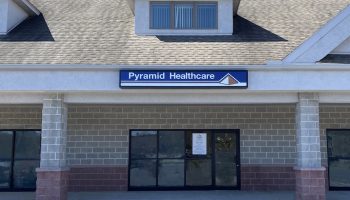MedMark Treatment Centers Blairsville

About MedMark Treatment Centers Blairsville
MedMark Treatment Centers Blairsville offers compassionate medication-assisted treatment (MAT) in a supportive outpatient setting for adults facing opioid use challenges in Blairsville and greater Indiana County, Pennsylvania. It’s along Old US Highway 22 in Blairsville just two miles north of the scenic Blairsville Riverfront Trail and the Blairsville Underground Railroad Museum. They create a welcoming and nonjudgmental atmosphere where everyone feels safe and comfortable as they begin their journey toward stability.
Quite commendable is their emphasis on keeping care accessible to all with Medicaid and several private insurances accepted. Medicaid patients even benefit from transportation assistance to and from the clinic.
They’re part of the VA Community Care Network through Optum and TriWest, ensuring veterans can access low-cost opioid recovery tailored to their needs. I love that they offer early Saturday availability, as this ensures greater access to care for those juggling work and family commitments.
Integrated Care Model For Long-Term Stability
At MedMark, clients are guided towards long-term abstinence and whole-person healing through an all-inclusive approach that includes MAT, outpatient therapy and case management. Following a thorough intake assessment, you’ll receive a personalized recovery plan that may include a methadone, Suboxone or Sublocade prescription. These FDA-approved medications relieve opioid withdrawal discomfort, curb intense cravings and stabilize brain chemistry.
Alongside the medication, you’ll regularly attend counseling to address underlying trauma and develop emotional resilience and relapse prevention strategies for long-term success. At the same time, your case manager will connect you with critical local resources such as stable housing, job opportunities and transportation.
Treatment That Meets Diverse Needs
With a strong focus on inclusiveness, they support LGBTQ+ members, veterans and folks navigating legal challenges. Specialized care is available for pregnant women through coordination with prenatal providers to ensure maternal and fetal safety while championing seamless delivery outcomes. In addition, they provide guest dosing services, enabling individuals away from their home clinics to maintain consistent medication-assisted treatment without interruption.
| Levels of Care | Detox Service Setting | Programs | Payment Options | ||||
|---|---|---|---|---|---|---|---|
|
In outpatient therapy, you’ll attend therapy sessions several times each week while living at home. This is ideal if you have a strong support system and a lower risk of relapse. Outpatient treatment offers flexibility to maintain work, school or family obligations. |
Aftercare programs provide ongoing support after you complete a rehab program. They may include several components to help you maintain sobriety including therapy, community support groups and relapse prevention strategies. This gives you a network of resources as you reintegrate into your daily life. |
||||||
|
Outpatient detox gives you access to medically supervised withdrawal services while still allowing you to live at home. You’ll attend a clinic for treatment and monitoring. This flexible option is suitable for those with mild to moderate withdrawal symptoms who have strong support systems. |
|||||||
|
Adult programs address the substance use and life challenges specific to adults. Therapists can deliver sessions in individual, group and family settings. Services often include job support and life skills training in a structured environment. |
Alcohol detox programs offer medical support to help individuals withdraw safely from alcohol. Your care team may use medications to ease your symptoms and provide medical monitoring to address complications. |
Cognitive behavioral therapy focuses on changing harmful thought patterns and behaviors associated with addiction. You’ll learn healthier coping mechanisms by identifying and replacing negative thoughts. This improves your emotional resilience and decreases your relapse potential. |
Drug detox programs support individuals who are withdrawing from addictive substances like cocaine and heroin. Medical support helps you manage symptoms in a controlled and safe environment so you can achieve initial sobriety. |
Men's programs address substance use while also considering the social pressures, family roles and mental health concerns that are specific to men. You’ll learn healthy coping mechanisms as you build emotional resilience and develop communication skills. |
Opioid detox uses medications to ease severe withdrawal symptoms. It also includes medical supervision to help you manage potential complications. These services allow you to stabilize and begin a recovery plan. |
Women's programs offer a safe and supportive space to focus on gender specific issues such as trauma, family roles and mental health conditions. Therapists tailor the sessions to address women's needs and foster empowerment in a healing and nurturing environment. |
Young adult programs are designed for individuals who are transitioning into adulthood. Topics of discussion typically include identity, independence and peer relationships. Providers may also offer life skills training and career support. |
|
Payment Assistance
|
Medicaid
|
Private Insurance
|
Self Pay
|
Levels of Care
In outpatient therapy, you’ll attend therapy sessions several times each week while living at home. This is ideal if you have a strong support system and a lower risk of relapse. Outpatient treatment offers flexibility to maintain work, school or family obligations.
Aftercare programs provide ongoing support after you complete a rehab program. They may include several components to help you maintain sobriety including therapy, community support groups and relapse prevention strategies. This gives you a network of resources as you reintegrate into your daily life.
Detox Service Setting
Outpatient detox gives you access to medically supervised withdrawal services while still allowing you to live at home. You’ll attend a clinic for treatment and monitoring. This flexible option is suitable for those with mild to moderate withdrawal symptoms who have strong support systems.
Programs
Adult programs address the substance use and life challenges specific to adults. Therapists can deliver sessions in individual, group and family settings. Services often include job support and life skills training in a structured environment.
Alcohol detox programs offer medical support to help individuals withdraw safely from alcohol. Your care team may use medications to ease your symptoms and provide medical monitoring to address complications.
Cognitive behavioral therapy focuses on changing harmful thought patterns and behaviors associated with addiction. You’ll learn healthier coping mechanisms by identifying and replacing negative thoughts. This improves your emotional resilience and decreases your relapse potential.
Drug detox programs support individuals who are withdrawing from addictive substances like cocaine and heroin. Medical support helps you manage symptoms in a controlled and safe environment so you can achieve initial sobriety.
Men's programs address substance use while also considering the social pressures, family roles and mental health concerns that are specific to men. You’ll learn healthy coping mechanisms as you build emotional resilience and develop communication skills.
Opioid detox uses medications to ease severe withdrawal symptoms. It also includes medical supervision to help you manage potential complications. These services allow you to stabilize and begin a recovery plan.
Women's programs offer a safe and supportive space to focus on gender specific issues such as trauma, family roles and mental health conditions. Therapists tailor the sessions to address women's needs and foster empowerment in a healing and nurturing environment.
Young adult programs are designed for individuals who are transitioning into adulthood. Topics of discussion typically include identity, independence and peer relationships. Providers may also offer life skills training and career support.




